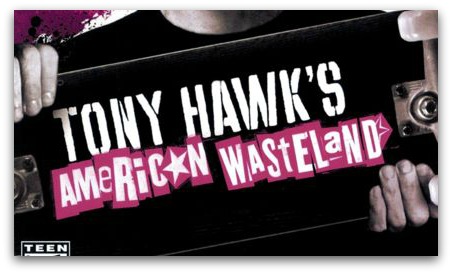Uncle John’s new book, Lists That Make You Go Hmmm… is available now. Here’s a sample.
Tony Hawk (professional skateboarder, 1982–99)

“I was shopping this game idea, weighing my options when I went to Activision, but when I saw what they were working on, I said, ‘This is exactly what I’d love to be involved with,’ and following that gut reaction was hugely successful.” How successful? The Tony Hawk video game series has made more than $1.6 billion, and his personal net worth is estimated at $120 million.
Dave Bing (NBA guard, 1966–78)
“The mistake most of us make is that we think we’re going to play forever,” said the former Detroit Piston, who in 1996 was named one of the NBA’s 50 greatest players. “Very few guys, I think, prepare for a second career.” Not wanting to make that same mistake himself, Bing spent his off-seasons working as a bank management trainee. When he retired in 1978, Paragon Steel wanted to hire him as a spokesman, but Bing insisted on a two-year training program instead. In 1980 he took out a loan and founded Big Steel, a steel-processing mill. At its peak, Big Steel was the 10th-largest African American–owned company in the U.S., with profits of $61 million. Bing also owned Superb Manufacturing, which made $28 million per year.
Gary Fencik (NFL safety, 1976–87)
After graduating from Yale University, Fencik signed with the Chicago Bears and spent his entire career there, setting the team’s all-time record for interceptions. In 1985, as the Bears’ season was heading toward the Super Bowl, Fencik was also working his way toward his MBA by spending two nights a week at finance school (possibly making him the only athlete ever to have earned a Super Bowl ring and an MBA in the same year). “One of the benefits of going to Yale is I had roommates, classmates, even teammates who were going to med school, law school, business school,” said Fencik, “so I never stopped thinking about what I was gonna do after football.” He retired in 1987, and in 1992 Wells Fargo hired him to run their Chicago investment office. By 2000 Fencik was heading up global business development for Adams Street Partners, a $25 billion private equity company, where today he’s also a full partner.
Ulysses “Junior” Bridgeman (NBA shooting guard, 1975–87)
One day, the former Milwaukee Buck heard a woman on a call-in radio talk show complain, “I was at Wendy’s, and I saw Junior Bridgeman working behind the counter. If that’s the best these ex-athletes can do…” What the lady didn’t realize was that Bridgeman was there learning his new trade from the ground up. During his time with the Bucks, he scored 11,517 points and held the franchise record for most games played consecutively. When he wasn’t on the court, he worked as an insurance salesman and at the front desk of a hotel. After retiring in 1987, he bought five Wendy’s hamburger franchises and learned every aspect of his business, including spending time behind the counter. Today, Bridgeman owns 195 Wendy’s restaurants, making him the second-largest franchise owner in the United States. He also owns 125 Chili’s restaurants and 45 Fannie May chocolate stores. Forbes lists him at #24 on their list of wealthiest black Americans and estimates his net worth at $200 million.
Roger Staubach (NFL quarterback, 1969–79)
“It takes a lot of unspectacular preparation to have spectacular results in both business and football,” says Staubach, who’s done both. He led the Dallas Cowboys to two Super Bowl wins and led the NFL in passing four times. But he still found time to moonlight as a real estate broker. In 1977 he opened his own firm called the Staubach Company and worked there full-time when he retired from football in 1979. By 2008 his company had 50 offices in the United States and was bought out by Jones Lang LaSalle real estate for $640 million. Staubach was named executive chairman and now takes home a reported
$12 million a year.








